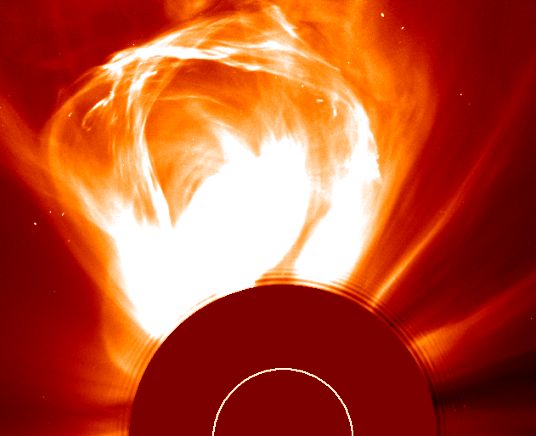Edit: In a city of 50,000 people and located near an interstate like the example of Grand Island there is practically very little except for a power outage that could wipe out Internet service.
However, if you reduce the size of the city and place it in the mountains far away from an Interstate or major roadway and large city there are a couple of ways to cut most or all Internet service to that town.
First let's look at the physical ways people get Internet and cell phone service.
1) Fiber optic cables
2) Copper wires/cables
3) Cellular
4) Microwave
5) Satellite
Fiber
Let's say the town is isolated, perhaps in a canyon you can eliminate the fiber option because unless there is a major business or super wealthy individual the infrastructure is too expensive.
Copper
Copper wires are pretty old technology and only support low speeds over long distances and would have long ago been replaced with microwave comms.
Cell Service
Since the town is not near any major roadways and pretty far away from other towns, setting up cell towers all the way out to this town would also be cost prohibitive. Cell service would most likely be brought in via microwave with a cell tower or two placed around the town for coverage.
Microwave
Microwave comms has been around for decades and can hop tens of miles per tower so that is a very likely scenario - many places to this day use microwave towers to provide telephone and other services.
If you take out one tower the town is out of comms for as long as it takes to construct another tower with the proper comms gear. Weather, truck accident, sabotage - there are many ways to take out a single tower. Especially if the towers are on mountain tops in rugged terrain. A significant storm could cause a landslide that should make erecting another tower take a significant amount of time so that a proper location could be scouted. Telephone, cell phone, Internet would all travel over this one microwave link and thus take out all communications other than satellite.
Satellite Comms
Natural - A solar storm could easily knock out a couple of satellites - so too could a piece of debris in orbit.
Sabotage - Satellite signals are quite weak by the time they reach the ground. If someone set up a transmitter with even moderate power on the satellite bands, it could easily jam incoming signals.
That takes care of the physical hardware but there are other single points of failure.
Problems with the single Internet Service Provider:
1) The company could go bankrupt
2) The ISP could have a fire, flood, explosion, etc. at the 'edge' node that goes to the town.
3) A group of hackers could compromise the edge node.
And just for good measure, here is a real life example of a fairly large group of people losing their Internet for a short time.
Verizon told me on June 3rd that the fiber was part of a ring that
stretched from New York city through Broome County. The other side of
the ring was taken out the day before by a manhole fire and was under
repair. No Verizon services were affected. Once the other side was cut
on Thursday by stormy weather, Verizon and First Energy, who they
leased the fiber from, had to wait to the all clear from the utility
and emergency services to repair the break.

